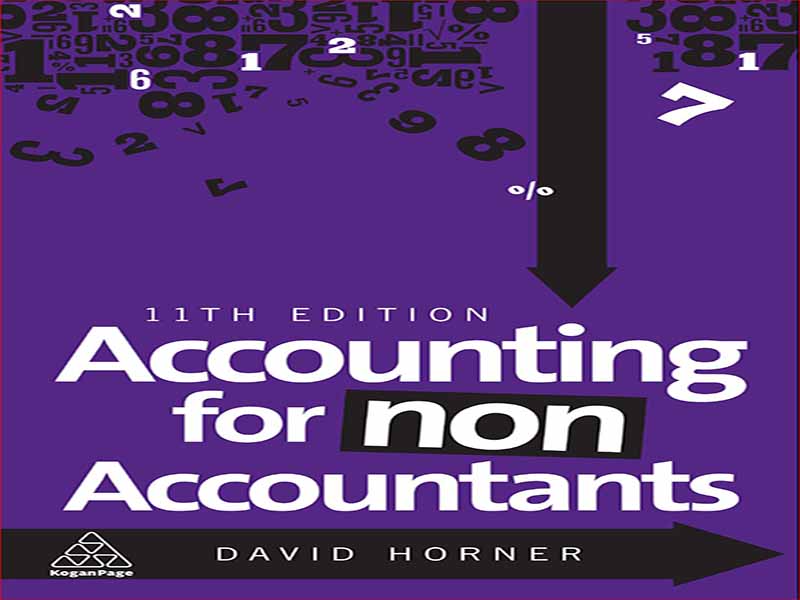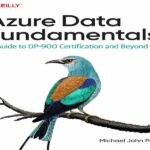- عنوان کتاب: Accounting for Non-Accountants
- نویسنده: David Horner
- حوزه: حسابداری
- سال انتشار: 2017
- تعداد صفحه: 409
- زبان اصلی: انگلیسی
- نوع فایل: pdf
- حجم فایل: 3.03 مگابایت
حسابداری به عنوان یک موضوع نسبتاً خشک، فنی، و اصطلاحات سنگین شهرت دارد. این مایه تاسف است. در حالی که درست است که مطالعه حسابداری به معنای آکادمیک بر دانش فنی متکی است، دلیلی وجود ندارد که کسانی که آموزش رسمی در رشته دانشگاهی حسابداری ندارند، نتوانند به سرعت در درک معنای پشت دادههای ارائه شده در «حسابها» ماهر شوند. بیشتر مدیرانی که با دادههای مالی مواجه میشوند، به سرعت میخواهند معنی پشت دادهها را بدانند و بیشتر نگران این هستند که چگونه دادهها را میتوان تفسیر کرد و برای تصمیمگیری استفاده کرد. حسابداری برای غیرحسابداران هیچ دانش قبلی از حوزه موضوعی را فرض نمی کند و به عنوان متنی مقدماتی برای آن دسته از مدیران و شاغلانی طراحی شده است که مایل به نظارت بر رشته دانشگاهی حسابداری هستند. این کتاب حسابداری مالی و حسابداری مدیریت را با جزئیات کافی پوشش می دهد تا امکان تفسیر داده ها را فراهم کند و در عین حال در دسترس باقی بماند تا کاربر بتواند به سرعت درک درستی از اصول اساسی حوزه موضوعی به دست آورد. کتاب به گونه ای طراحی شده است که به ترتیب مطالعه شود. هفت فصل اول بر اصول اساسی حسابداری مالی متمرکز است: مقدمه ای بر حسابداری دوطرفه، حفظ سیستم حسابداری و همچنین ساخت صورت های مالی اساسی برای انواع مختلف سازمان های تجاری. با این حال، این امکان برای یک مدیر وجود خواهد داشت که بر بخشهای خاصی از متن به صورت مجزا تمرکز کند. جنبه های حسابداری مدیریت در فصل های 8 تا 13 پوشش داده شده است. در اینجاست که داده ها به شیوه ای کمتر رسمی ارائه می شوند، همانطور که در مورد مطالعه حسابداری مالی وجود دارد. یک مدیر میتواند از این دادهها برای تصمیمگیریهای تجاری بدون مطالعه لازم در مورد موضوعات حسابداری مالی قبلی استفاده کند – اگرچه برخی از اصطلاحات ممکن است داشتن حداقل یک پایه اساسی در برخی از کارهای قبلی تحت پوشش را عملی کند.
Accounting has a reputation as a rather dry, technical, jargon-heavy subject. This is unfortunate. Whilst it is true that study of accounting in an academic sense relies upon technical knowledge, there is no reason why those without formal training in the academic discipline of accounting cannot quickly become adept at understanding the meaning behind the data presented in ‘accounts’. Most managers who are faced with financial data will quickly want to know the meaning behind the data and will be more concerned with how data can be interpreted and used for making decisions. Accounting for Non-Accountants assumes no prior knowledge of the subject area and is designed to serve as an introductory text for those managers and practitioners who wish to gain an oversight into the accounting academic discipline. The book covers both financial accounting and management accounting in sufficient detail to allow data to be interpreted whilst at the same time remaining accessible so the user can quickly gain an understanding of the basic principles of the subject area. The book is designed to be studied in a sequential order. The first seven chapters focus on the fundamental principles of financial accounting: an introduction to double-entry bookkeeping, maintenance of the bookkeeping system as well as construction of basic financial statements for a variety of types of business organizations. However, it will be possible for a manager to focus on particular sections of the text in insolation. Aspects of management accounting are covered in Chapters 8 through 13. This is where data are presented in a less formalistic way, as is the case when studying financial accounting. A manager can use these data for making business decisions without necessary study of earlier financial accounting topics – though some of the terminology may make it practical to have at least a basic grounding in some of the earlier work covered.
این کتاب را میتوانید از لینک زیر بصورت رایگان دانلود کنید:
Download: Accounting for Non-Accountants



































نظرات کاربران